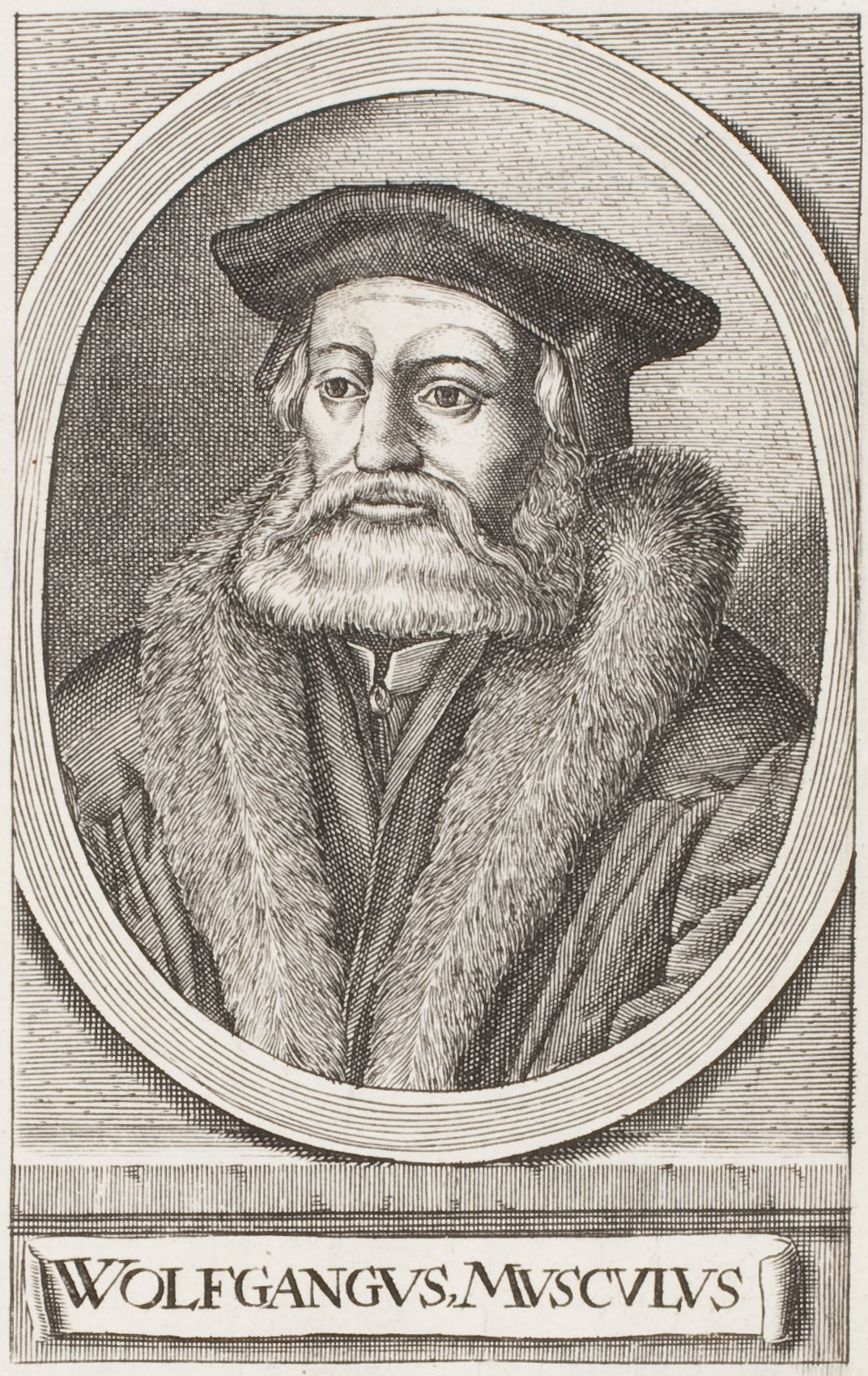Wolfgang Meuslin on:
[Wikipedia]
[Google]
[Amazon]
 Wolfgang Musculus, born "Müslin" or "Mauslein", (10 September 1497 – 30 August 1563) was a Reformed
Wolfgang Musculus, born "Müslin" or "Mauslein", (10 September 1497 – 30 August 1563) was a Reformed
 Wolfgang Musculus, born "Müslin" or "Mauslein", (10 September 1497 – 30 August 1563) was a Reformed
Wolfgang Musculus, born "Müslin" or "Mauslein", (10 September 1497 – 30 August 1563) was a Reformed theologian
Theology is the systematic study of the nature of the divine and, more broadly, of religious belief. It is taught as an academic discipline, typically in universities and seminaries. It occupies itself with the unique content of analyzing the ...
of the Reformation
The Reformation (alternatively named the Protestant Reformation or the European Reformation) was a major movement within Western Christianity in 16th-century Europe that posed a religious and political challenge to the Catholic Church and in ...
.
Life
Born in the village of Duss ( Moselle), in a German-speaking area (French-speaking, from theThirty Years War
The Thirty Years' War was one of the longest and most destructive conflicts in European history, lasting from 1618 to 1648. Fought primarily in Central Europe, an estimated 4.5 to 8 million soldiers and civilians died as a result of battl ...
), Musculus was a lover of song and of knowledge, of languages, Humanism
Humanism is a philosophy, philosophical stance that emphasizes the individual and social potential and Agency (philosophy), agency of Human, human beings. It considers human beings the starting point for serious moral and philosophical in ...
and religion. The oral tradition of his songs is still found in the churches of the Reformation.
In 1527, he left the Benedictine monastery
, image = Medalla San Benito.PNG
, caption = Design on the obverse side of the Saint Benedict Medal
, abbreviation = OSB
, formation =
, motto = (English: 'Pray and Work')
, found ...
at Lixheim
Lixheim is a commune in the Moselle department in Grand Est in north-eastern France. The commune Vieux-Lixheim lies 1 km to the north-west.
See also
* Communes of the Moselle department
The following is a list of the 725 communes of th ...
(now in the area of Moselle), to serve as deacon
A deacon is a member of the diaconate, an office in Christian churches that is generally associated with service of some kind, but which varies among theological and denominational traditions. Major Christian churches, such as the Catholic Chur ...
of the Cathedral of Our Lady of Strasbourg (french: link=no, Cathédrale Notre-Dame-de-Strasbourg) and preaching assistant to Matthäus Zell
Matthäus Zell (also ''Mathias Zell''; anglicized as ''Matthew Zell'') (21 September 1477, in Kaysersberg – 9 January 1548, in Strasbourg) was a Lutheran pastor and an early Protestant reformer based in Strasbourg. He joined the Reformat ...
while studying under Bucer and Capito. He left for Augsburg in 1531, and after 17 years of service, he left the town after the introduction of the Augsburg Interim
The Augsburg Interim (full formal title: ''Declaration of His Roman Imperial Majesty on the Observance of Religion Within the Holy Empire Until the Decision of the General Council'') was an imperial decree ordered on 15 May 1548 at the 1548 Diet ...
, and came to Switzerland, where he was the primary professor of theology at Bern from 1549. At Bern, he wrote several biblical commentaries
Exegesis ( ; from the Greek , from , "to lead out") is a critical explanation or interpretation of a text. The term is traditionally applied to the interpretation of Biblical works. In modern usage, exegesis can involve critical interpretations ...
and ''Loci communes sacrae theologiae'' (''Common Places of the Christian Religion''), a major systematic theology
Systematic theology, or systematics, is a discipline of Christian theology that formulates an orderly, rational, and coherent account of the doctrines of the Christian faith. It addresses issues such as what the Bible teaches about certain topic ...
.
J. S. Bach
Johann Sebastian Bach (28 July 1750) was a German composer and musician of the late Baroque period. He is known for his orchestral music such as the '' Brandenburg Concertos''; instrumental compositions such as the Cello Suites; keyboard wo ...
used Musculus' 1530 hymn, a paraphrase of Psalm 23
Psalm 23 is the 23rd psalm of the Book of Psalms, beginning in English in the King James Version: "The Lord is my shepherd". In Latin, it is known by the incipit, "". The Book of Psalms is part of the third section of the Hebrew Bible, and a boo ...
, as the text for his chorale cantata A chorale cantata is a church cantata based on a chorale—in this context a Lutheran chorale. It is principally from the German Baroque era. The organizing principle is the words and music of a Lutheran hymn. Usually a chorale cantata includes m ...
''Der Herr ist mein getreuer Hirt'', BWV 112, which he first performed in Leipzig
Leipzig ( , ; Upper Saxon: ) is the most populous city in the German state of Saxony. Leipzig's population of 605,407 inhabitants (1.1 million in the larger urban zone) as of 2021 places the city as Germany's eighth most populous, as ...
in 1731.
Notes and references
Bibliography
* * * *. The Validity of Children at the Lord's Table in the Words of an Early Reformed Theologian. * Includes appendices on oaths and usury. *.External links
* {{DEFAULTSORT:Musculus, Wolfgang 1497 births 1563 deaths People from Dieuze German Calvinist and Reformed theologians Swiss Calvinist and Reformed theologians 16th-century Swiss writers 16th-century Calvinist and Reformed theologians German male non-fiction writers 16th-century German Roman Catholic priests German Protestant clergy German Christian monks German Protestant hymnwriters University of Bern faculty